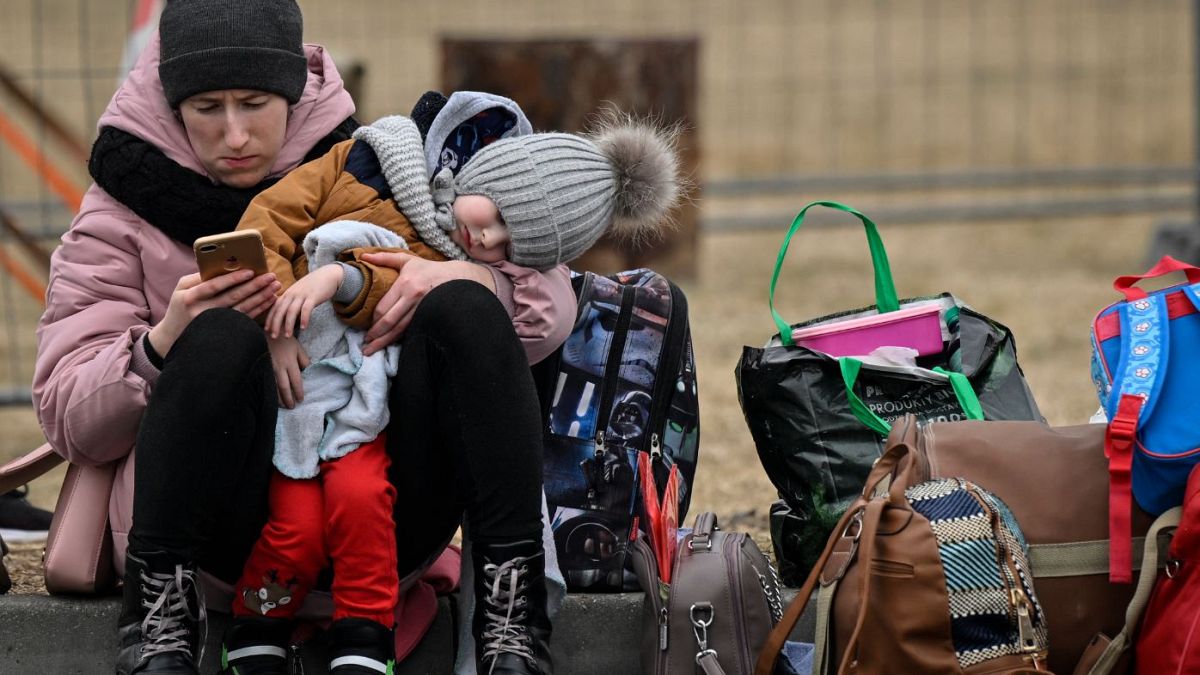Diana Shore, founder of 'Room for Ukrainians in the UK', has called on social media companies to adopt geolocation software to ensure the safety of Ukrainian refugees online.
As the war continues into its second month, millions of Ukrainians continue to flee in search of safety.
The UN's Refugee Agency (UNHCR) has estimated that more than 3.5 million people have escaped the conflict since the war began in February.
Countries like the UK, have since opened up their doors to help struggling Ukrainians settle into new homes with families offering humanitarian support.
Diana Shore started one of the largest groups on Facebook, to help Ukrainian refugees find a safe home in the UK. She says that she started the group to give Britons "a place to communicate their willingness to help".
"Room for Ukrainians in the UK" has since amassed over 15,000 members since its creation on 5 March.
Ukrainian refugees looking for a UK sponsor can post in the group, where Diana and her team will work to provide a match.
The group say at least 50 Ukrainian families have been matched with UK families and sponsors.
"Across the UK there was a wave of humanity. People were prepared to open their homes after two years of living in such a separate state, to people they didn't even know", she says.
However, Diana has said that despite the flow of well-meaning people, she has had to fend off online trolls and potential traffickers who flock to the group in order to take advantage of the crisis.
'It definitely raised alarm bells'
The UN's International Organization for Migration (IOM) has warned that there is also an increased risk of human traffickers targeting the vulnerable as the number of Ukrainian refugees continues to grow.
“We know how quickly the criminal world adjusts to changing realities and finds new victims. We call on Ukrainians and other nationals leaving Ukraine to stay alert and be cautious when on the move, at a new place or at home,” said IOM Ukraine Chief of Mission Anh Nguyen.
Shore told Euronews that after being made aware of the dangers of trafficking, she had begun to notice "some anomalies".
"When I first started getting unpleasant comments being made about Ukrainian women, sexually derogatory comments, it raised alarm bells because it just seemed so inappropriate and out of context."
"The man who only contacts single young women but hasn't actually got a [Facebook] profile himself", she said, to give an example.
Shore said she was "surprised" by the number of accounts that belonged to Russian users and says while they may have "legitimate reasons for being interested", she had to make a decision given the sensitivity of the situation.
"I thought it was a form of voyeurism, which I wasn't comfortable with and so I made a decision, regretfully, to exclude these people."
Diana says it hasn't been easy to spot the suspicious posts and accounts as they come in but says there has been a collective effort by members and moderators to flag concerning content.
She has since joined a growing number of people who have urged social media companies to ensure the safety of users online.
Shore is calling on Facebook to adopt software -- used by online dating agencies -- to help identify the geographical location of the user.
"It's much more difficult to clone someone's identity if you have that kind of safeguarding in place", she says.
"Why are we putting people fleeing from war in a position where anybody can pose as a trustworthy person and they have no way of checking and their lives are at stake?"
She says that there needs to be "some way that people who are in that kind of crisis can authenticate the person they're speaking to."
Facebook has since been blocked in Russia after its parent company Meta was labelled an "extremist organisation". But with VPNs and Tor browsers, many can still find ways around the ban.
Euronews reached out to Facebook for comment but did not receive a response at the time of this report.
